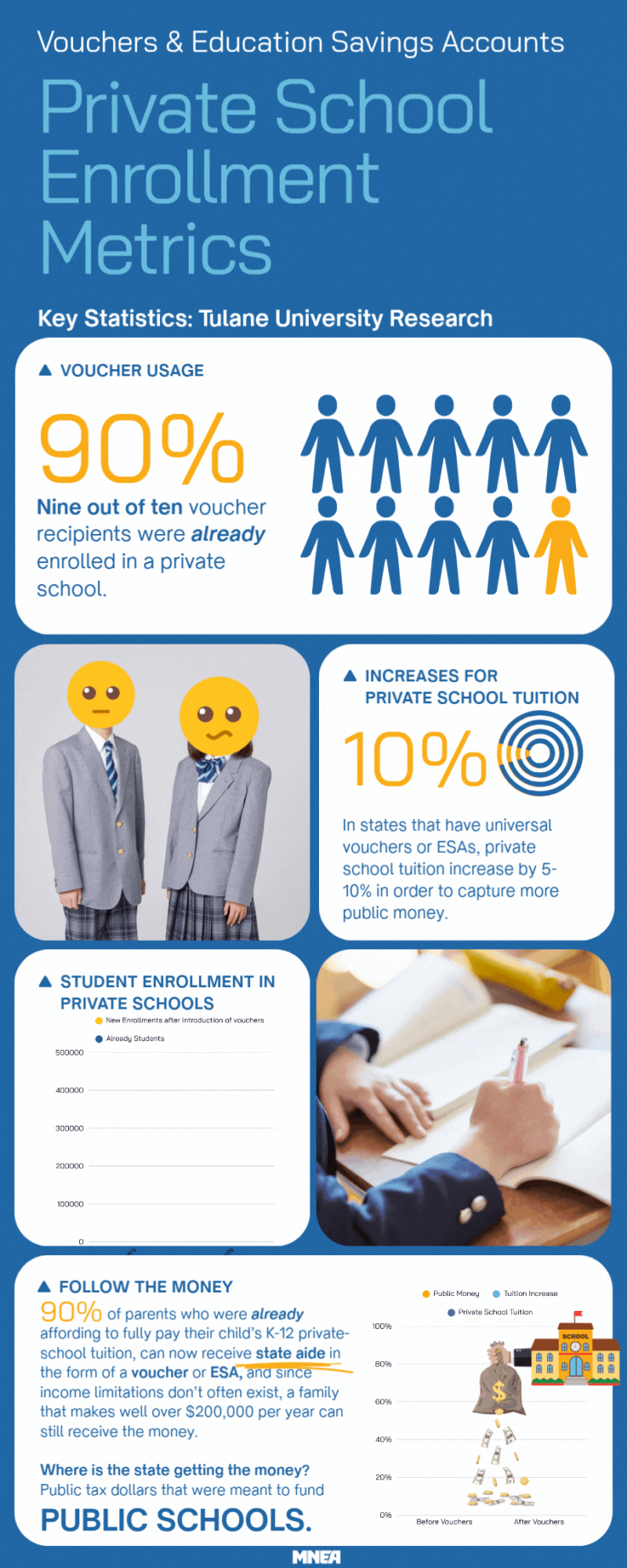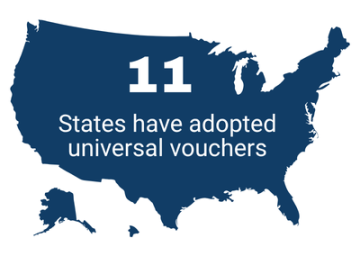By Samantha Hayes, MNEA Director of Professional Policy & Practice
Missouri NEA is fighting voucher schemes in court because the evidence is clear: universal vouchers drain resources from public schools, raise private school costs, and mostly benefit families already attending private schools.
New national research from Tulane University confirms what public educators already suspected. A September 2025 study analyzing 11 states that adopted universal vouchers between 2021 and 2024 found that over 90 percent of voucher recipients were already enrolled in private schools. That means taxpayer dollars aren't expanding access. They're subsidizing families who were already paying for private school.
Meanwhile, private school tuition increased by 5 to 10 percent in states with universal vouchers, primarily in smaller, lower-cost schools. The promise of "school choice" rings hollow when private schools simply raise prices to capture public funding, leaving Missouri families right back where they started. Or worse off.
Follow the Money
 While private school enrollment grew by only about 35,000 students across voucher states, more than 500,000 students received vouchers. The math is simple: most of that public money went to families already choosing private schools, not to new students switching from public education.
While private school enrollment grew by only about 35,000 students across voucher states, more than 500,000 students received vouchers. The math is simple: most of that public money went to families already choosing private schools, not to new students switching from public education.
And when public funding flows to private schools with minimal accountability, those schools raise tuition. The Tulane study found the largest tuition hikes in non-religious schools and schools that previously charged lower tuition. High-cost elite schools? Their prices barely budged. They were already out of reach.
Religious schools showed smaller tuition increases, likely because their mission extends beyond revenue. But even that pattern reveals the problem: vouchers aren't creating equitable access. They're reshaping an already unequal system in ways that benefit those who need help least.
What This Means for Missouri
Missouri NEA opposes vouchers because public dollars belong in public schools. Schools with elected boards. Schools that serve every student. Schools are accountable to the communities they serve.
Private schools accepting vouchers face no such requirements. No transparency. No accountability. No obligation to publish student outcomes or financial data. And as this research confirms, they're free to raise tuition the moment public money arrives.
That's not expanding opportunity. That's extracting public resources for private gain.
Infographic: Rishanda Richardson, MNEA Director of Digital Communications & Research


